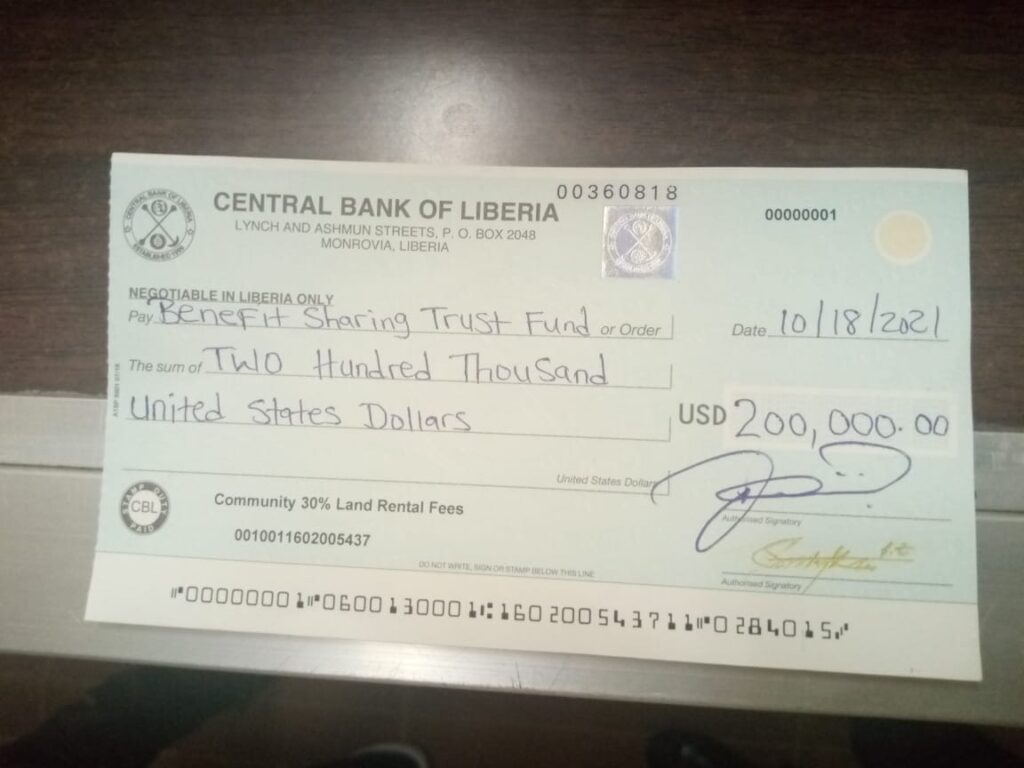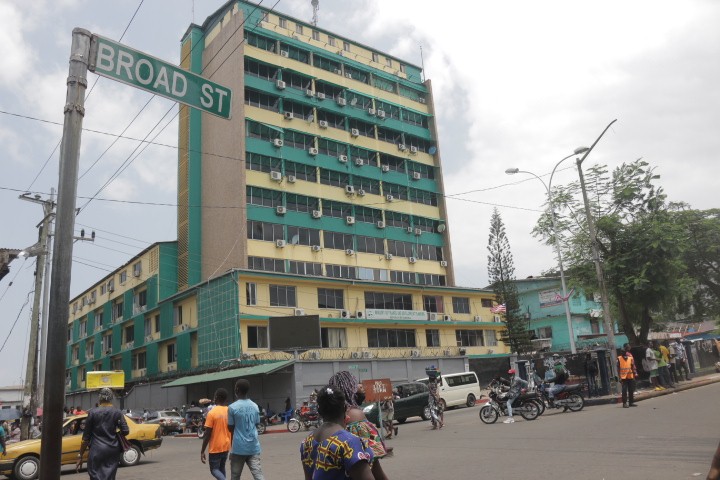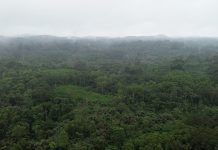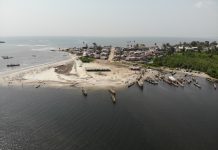Banner Image: The Ministry of Finance and Development Planning in Monrovia. The DayLight/Harry Browne
BY Emmanuel Sherman
MONROVIA – The Government of Liberia has paid US$200,000 to communities affected by logging concessions.
The payment represents a tenth of over US$5.5 million owed communities in land rental fees since the 2015/2016 fiscal year they protested for in August.
“The US$200,000 check for the initial payment of community 30 percent arrears owed by [the government] is now issued directly into the Benefit Sharing Trust Board’s account opened at the Central Bank of Liberia for the communities’ [share of land rental fees],” said Andrew Zelemen, the coordinator of the National Union of Community Forest Development Committee (NUCFDC) which organized the protest. “The check was issued on Monday, October 18, 2021, and was received by the Trust Board Finance and administration officer, witnessed by me and is being deposited today October 19 at the Trust Board Account.”

Rural communities in Liberia affected by forest management contracts and timber scale contracts (TSCs) staged a planned weeklong protest in front of the Ministry of Finance and Development Planning, demanding the government to pay them their share of US$27.7 million collected from logging concessions ever since. It was the third year in a row they had agitated for their share of forest revenue, guaranteed under the 2006 National Forest Reform Law of Liberia.
NCFDC represents 23 community forest development committees (CFDCs) within seven forest management contract (FMC) and nine timber sale contract (TSC) areas in Lofa, Gbarpolu, River Cess, Nimba, Grand Gedeh, Sinoe, River Gee, Grand Kru, Maryland, Grand Bassa and Grand Cape Mount. FMC covers forests between 50,000 and 400,000 hectares; while TSC falls within forestlands of not more than 5,000 hectares.
Forestry is one the biggest contributors to the Liberian budget, with the sector generating US$8,148,559 10.23% of total revenue in the 2018/2019 period, according to the Liberia Extractive Industry Transparency Initiative (LEITI).





Facebook Comments